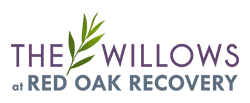Many think that 30 days is all you need to kick the habit, but the evidence shows that for most people, a three-month stay in a treatment center is the most effective length of time to make the transition to sober living. It takes that long to change old habits and replace them with a new vision for your life.
Research has shown that at least three months are needed to reduce or stop substance abuse. This much-needed time should be spent in a residential treatment center rather than an outpatient program. Many people try to stop using drugs and alcohol on their own and relapse again and again. An inpatient long-term rehab program will give you the professional treatment and support you need to break the habit.
If you’re looking for a long-term drug rehab center, The Willows at Red Oak is here to help. To learn more about our services, please get in touch with us today at 855.773.0614.
Why Should You Attend a Long-Term Drug Rehab?
By choosing a long-term drug rehab program over a short-term outpatient program, you commit to fulfilling your goal of getting sober. You will also take part in in-depth therapy to confront the traumas and circumstances that have led to your addiction. You can enjoy experiential and adventure-based therapies that can have a positive effect on your outlook on life. A women’s addiction treatment center can have the added benefit of providing the safest possible space to reflect and heal.
Studies show that the longer you stay in rehab, a favorable outcome is more likely to occur. Furthermore, your social network of people undergoing recovery will increase, providing you with a support group to aid with continuing sobriety. Graduates of long-term rehab programs have better employment opportunities than those who did just a 30-day program.
There are six primary advantages to attending long-term drug rehab, including:
- Provides enough time for the withdrawal period to run its course
- Time for any physical side effects to heal properly
- You can examine the factors that led to your addiction, including past trauma and family history
- Learn appropriate strategies to maintain sobriety and how to utilize them
- Allow positive habits to become ingrained
- Can allow you to make a faster transition from treatment to recovery
To learn more about the benefits of attending a 90-day rehab program, please reach out to The Willows at Red Oak today at 855.773.0614.
What Does Our Women’s Addiction Treatment Involve?
Our women’s addiction treatment center provides the opportunity for women to address their substance abuse issues in a safe environment. You can also engage in female-specific therapy practices where you can openly discuss these problematic issues. Young women have been particularly affected by the scourge of drug abuse, numbering in the millions each year.
However, with the help of our masters-level clinical team, you can honestly confront what has caused your addiction and learn ways in how to overcome it. We have a gender-responsive treatment option where difficult topics like sexual abuse can be addressed in an interactive, non-judgmental setting. Many women would be hesitant to open up about specific issues in co-ed group therapy but would feel comfortable doing so in our women’s treatment program.
Reach Out to The Willows at Red Oak Recovery Today
We provide a place where women can work on their addiction issues in a treatment center run by master’s level clinicians in a beautiful setting surrounded by woods. We combine intensive therapies in a clinical environment with outdoor activities like horseback riding and hiking. Therefore, your stay at The Willows at Red Oak Recovery will be not only life-changing but life-affirming.
We are more like a resort than a hospital, and we want our clients to enjoy their stay here while they undergo therapy. A long-term drug rehab program is the best solution to your addiction problem, and today is the day to make that all-important change in your life. We can be reached online or at 855.773.0614 for you to take the first step on your journey to wellness and recovery.


